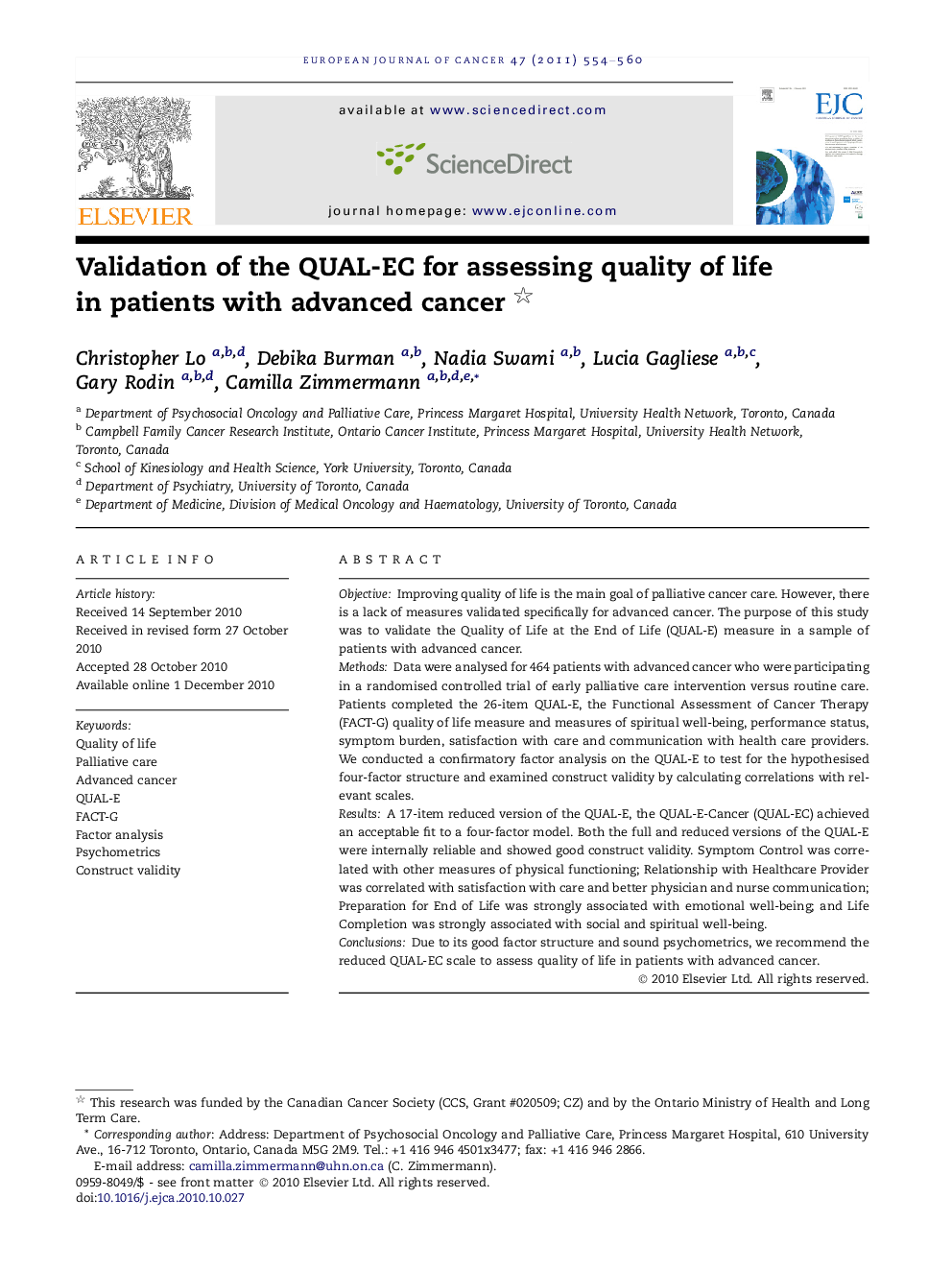| Article ID | Journal | Published Year | Pages | File Type |
|---|---|---|---|---|
| 2122940 | European Journal of Cancer | 2011 | 7 Pages |
ObjectiveImproving quality of life is the main goal of palliative cancer care. However, there is a lack of measures validated specifically for advanced cancer. The purpose of this study was to validate the Quality of Life at the End of Life (QUAL-E) measure in a sample of patients with advanced cancer.MethodsData were analysed for 464 patients with advanced cancer who were participating in a randomised controlled trial of early palliative care intervention versus routine care. Patients completed the 26-item QUAL-E, the Functional Assessment of Cancer Therapy (FACT-G) quality of life measure and measures of spiritual well-being, performance status, symptom burden, satisfaction with care and communication with health care providers. We conducted a confirmatory factor analysis on the QUAL-E to test for the hypothesised four-factor structure and examined construct validity by calculating correlations with relevant scales.ResultsA 17-item reduced version of the QUAL-E, the QUAL-E-Cancer (QUAL-EC) achieved an acceptable fit to a four-factor model. Both the full and reduced versions of the QUAL-E were internally reliable and showed good construct validity. Symptom Control was correlated with other measures of physical functioning; Relationship with Healthcare Provider was correlated with satisfaction with care and better physician and nurse communication; Preparation for End of Life was strongly associated with emotional well-being; and Life Completion was strongly associated with social and spiritual well-being.ConclusionsDue to its good factor structure and sound psychometrics, we recommend the reduced QUAL-EC scale to assess quality of life in patients with advanced cancer.
